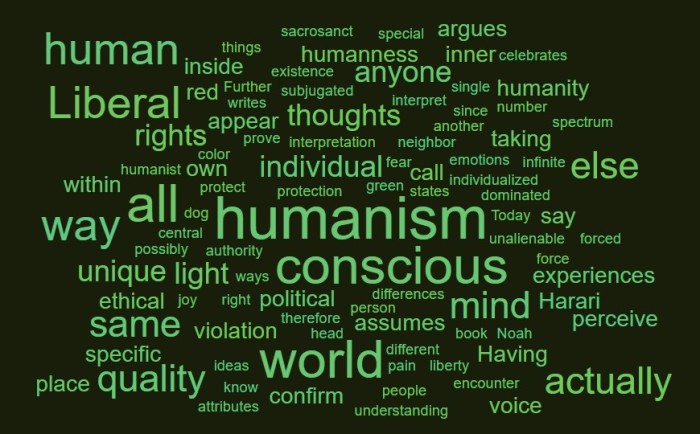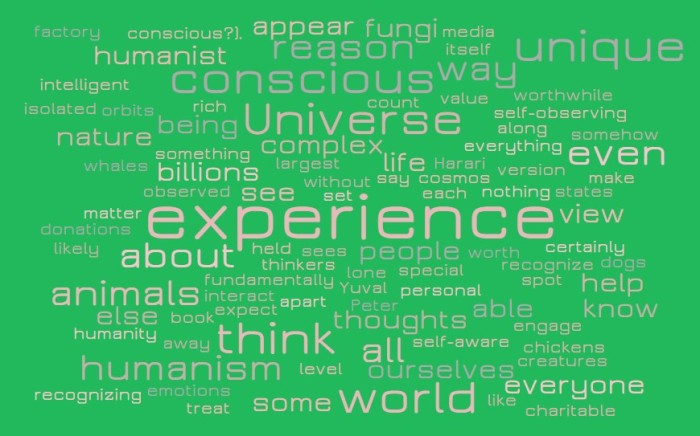“Today, the most important humanist sect is liberal humanism, which believes that humanity is a quality of individual humans, and that the liberty of individuals is therefore sacrosanct,” writes Yuval Noah Harari in his book Sapiens.
Consciousness is something we don’t actually understand all that well, but is central to ideas of humanism. I cannot actually prove that another person is conscious in the way that I am conscious. All I know is that there appear to be thoughts taking place within my head, and that those thoughts appear to be part of a single conscious entity (myself). I cannot confirm that my dog, my neighbor, or anyone else actually has the same conscious experience of the world taking place within their mind, but I can infer that they do.
Further, I cannot confirm that the way that I interpret and experience the world is the same as anyone else. Who is to say that the way that I perceive the wavelength of light that is the color red is the same as you perceive that wavelength? Who is to say that the quality of redness that we experience is the same. What if the quality that my mind places on the wavelength of light that we call green is the quality that your mind attributes to the wavelength of light that we call red? Again, since I am not inside your brain and can’t tell if you actually have thoughts and consciousness of your own or what your experience is like relative to mine.
Humanism assumes that all people are conscious and have qualitative experiences of the world that are effectively similar, but possibly different in an infinite number of ways. Liberal humanism assumes that all of these differences matter and should be thought of equally. Humans have a right, liberal humanism argues, to experience the world in their own unique way. Liberal humanism argues for human rights, that our consciousness is so special and individualized that we have unalienable rights to certain things in order to guarantee the continuation, protection, and exploration of our consciousness – our individual humanness.
Harari continues, “The inner core of individual humans gives meaning to the world, and is the source for all ethical and political authority. If we encounter an ethical or political dilemma, we should look inside and listen to our inner voice – the voice of humanity.” Humans should not be subjugated, dominated, or forced into a specific way of understanding their consciousness or their human experiences and existence. We are equal in terms of having a conscious mind that can experience joy, pain, pleasure, fear, and the full spectrum of human emotions. Having a ruler, a deity, or anyone and anything else force a specific view and interpretation of the world upon us is a violation of our unique humanness – it is a violation of human rights. Liberal humanism celebrates the unique individuality of human consciousness above all else, and seeks to protect it from states, gods, and other humans.


